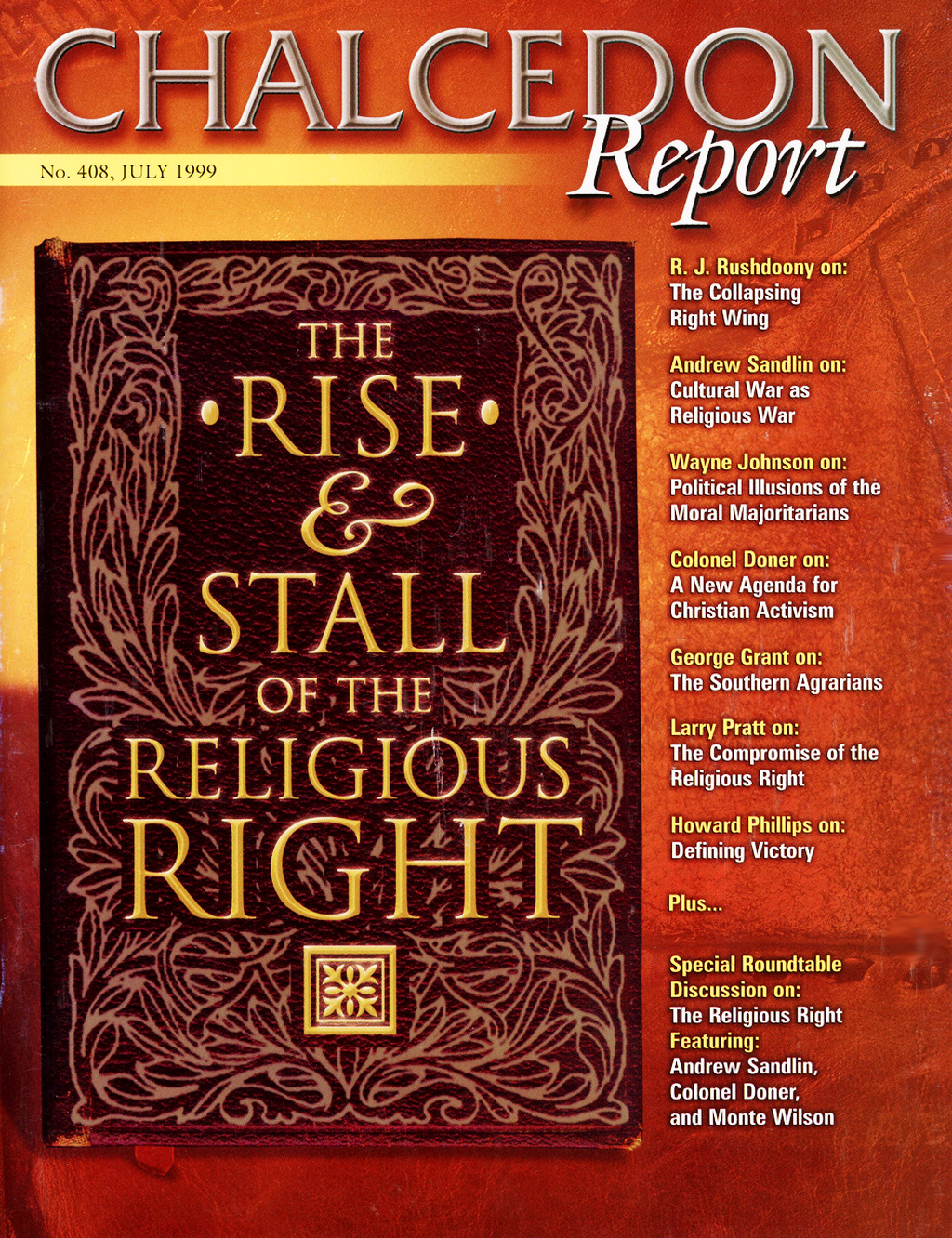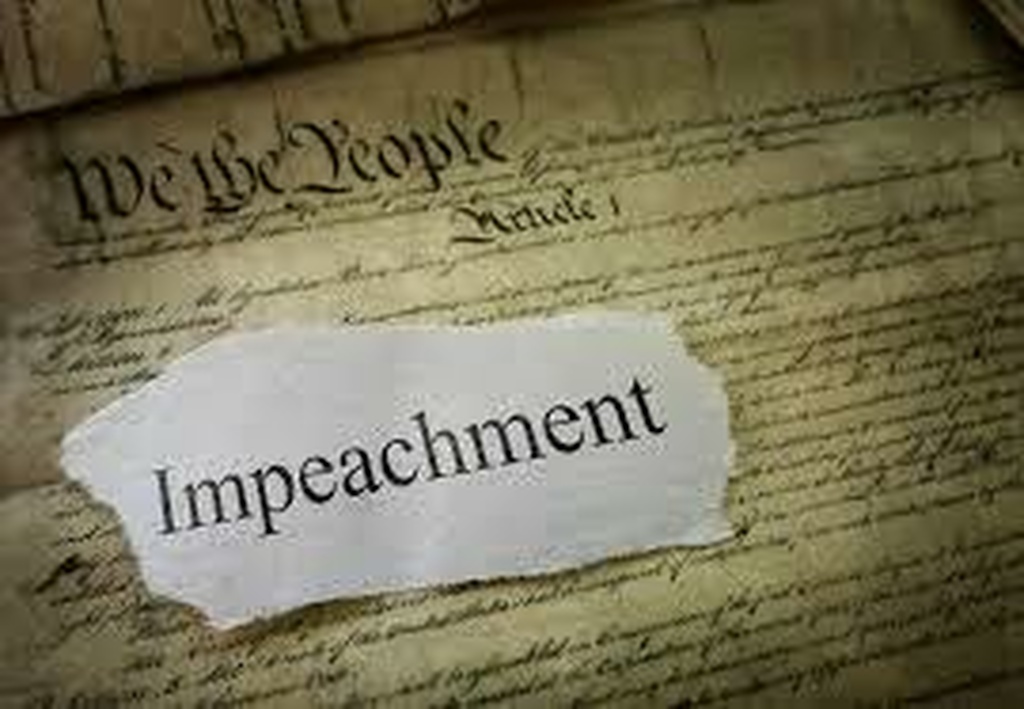
Magazine Issue
The Rise and Stall of the Religious Right
July 1999 Articles:
The Collapsing Right Wing

- R. J. Rushdoony
Cultural War as Religious War
- P. Andrew Sandlin
Hebrew Forefathers in the Faith

- Mark R. Rushdoony
"Hundreds Boycott Rally!": Political Illusions of the Moral Majoritarians
- Wayne C. Johnson
The Compromise of the Religious Right
- Larry Pratt
The Samaritan Strategy: A New Agenda for Christian Activism
- Colonel V. Doner
Cognitive Dissonance of Political Activists, Or Whatever Happened to the Religious Right?
- Colonel V. Doner
Defining Victory
- Howard Phillips
Toward a Biblical Agenda for Cultural Transformation
- P. Andrew Sandlin
- , Colonel V. Doner
- View More Authors
- Monte E. Wilson, III
Cultural Caveat: The Southern Agrarians
- George Grant, Ph.D.

Oaths and Religion
- Byron Snapp
Letter to the Editor on Violence in the Schools
God's Law

- R. J. Rushdoony
All I Really Need to Know About Worship... I Don't Learn from the Regulative Principle (Part IV)
- Steve M. Schlissel